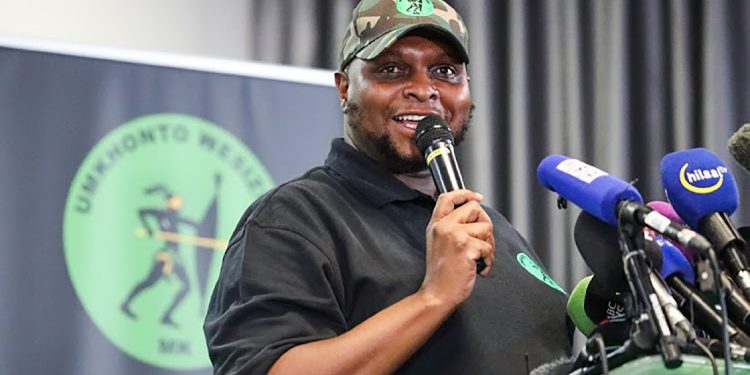Floyd Shivambu, Deputy President of the Economic Freedom Fighters (EFF), was recently seen carrying a firearm, sparking debate about the safety measures taken by South Africa’s political figures. This development comes in the context of growing concerns over the security of public officials, particularly in a country grappling with political and social tensions.
Shivambu’s decision to arm himself appears to reflect a wider trend among political leaders who seek to bolster their personal safety. Sources within the EFF stress that his actions are precautionary rather than reactive to any specific threat. The image of Shivambu with a firearm has nonetheless stirred mixed reactions, adding fuel to ongoing conversations about the balance between personal security and public perception.
Floyd is now carrying a firearm 🤔 pic.twitter.com/kk5X9l2Ymw
— Nhlanhla (@Nhlanhlantsim) November 19, 2024
Supporters and Critics React
EFF supporters view Shivambu’s actions as justified, citing the increasing risks faced by vocal political leaders. Sipho Ngwenya, an EFF loyalist, remarked, “In a volatile environment, it’s only logical for leaders like Shivambu to prioritize their safety. This is not about aggression—it’s about preparedness.”
Critics, however, are concerned about the broader implications of a high-profile figure like Shivambu being armed. Political analyst Dr. Reuben Khumalo commented, “The sight of a political leader carrying a firearm may inadvertently send a complex message. It could normalize the perception of political figures as targets, which might escalate public fear rather than reassure it.”
Legal Context
Under South Africa’s stringent firearm regulations, individuals must undergo comprehensive background checks, training, and licensing to own a firearm. Shivambu’s adherence to these laws is assumed, given the public scrutiny surrounding politicians. Nonetheless, the incident raises broader questions about the adequacy of security arrangements for leaders and the increasing need for self-reliance in personal safety.
A Broader Trend Among Leaders
Shivambu’s decision is not unprecedented. Several political figures across South Africa have opted for additional security or personal firearms in light of increasing threats. The growing prevalence of such measures reflects an acknowledgment of the risks faced by public officials, particularly those in high-profile or controversial roles.
Balancing Security and Responsibility
Shivambu’s actions have reignited the debate on how political leaders navigate their dual roles: as public servants and as individuals subject to the same vulnerabilities as ordinary citizens. His decision underscores the challenges of maintaining safety while being mindful of the public message such measures convey.
As South Africa grapples with socio-political unrest and security challenges, Shivambu’s move may set a precedent, prompting other leaders to adopt similar strategies. The development serves as a stark reminder of the complexities of public life in an unpredictable political climate, where personal security is becoming an increasingly pressing concern.






















